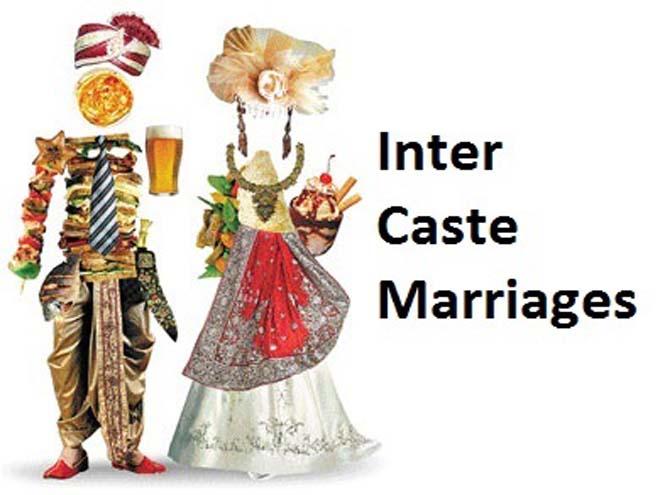The Facts Relating To Inter-Caste Marriage
If you belong to different castes and fall in love, you may face a difficult time from family, relatives, and community. Especially, this is the case when one of you belongs to an upper caste and the other backward caste.
The law courts have provided for inter caste marriage despite opposition from any quarters. Special Marriage Act 1954 was passed by the Indian Parliament to allow persons of different castes, religions or nationalities, the legal sanction to marry each other. The Act originated from legislation in the 19th century.

The law has three major Objectives:
• To provide special marriage form in individual cases
• Provide marriage registration in specific cases
• To provide for divorce
Application of Inter-Caste Marriages:
• Applies to all persons irrespective of caste, religion or nationality.
• Muslims, Hindus, Sikhs, Jains, and Buddhists can marry as per this Act.
• Paris, Jews, and Christians can marry as per this Act.
• This Act permits intercaste marriages
• This Act applies to all states of India except Jammu and Kashmir, and also, to Indian nationals living abroad.
There are some requirements for marriage as per this Act:
• Marriage is performed under the Special Marriage Act 1954 and is a civil contract. It doesn’t require rites or ceremonies.
• Both parties must file Notice of intended marriage with a marriage registrar of a district. The district must be one where either of the parities has resided for 30 days prior to the filing of the notice.
• The notice is publicized for 30 days to attract any objections.
• After 30 days have expired and no objections have been raised, the marriage can be solemnized.
• Solemnization of marriage must be done in the specific office of your marriage registrar.
• The marriage will not be legally binding until both parties agree to the status of a lawful husband and wife in front of the marriage officer and three witnesses.
• The bridegroom must be of 21 years and bride of 18 years.
• Both parties need to be monogamous- must not be legally married to any other living person.
• Both parties must be of sound mind and must give proper consent to the marriage.
• They should not fall within prohibited degrees of relationship.
A court marriage lawyer will help in conducting court marriage in Chandigarh. They will help couples get married under this Act through a simple and smooth process. Since he is aware of the court marriage procedure in Chandigarh, he will be able to provide proper guidance.
It is equally important that the couple is aware of the rules and regulations of their land and so can continue their marital life with the sanction of law and society. The court marriage advocate, who has vast experience in this field, will try to understand the requirements of each case and provide suitable guidance. The marriage solemnized with the help of advocate for court marriage stands legal and valid.
AdvocateinChandigarh has huge experience in dealing with such cases. We are helping the couple to perform the marriage if they want and filling the petition before the High Court Chandigarh for providing the accurate protection of life and liberty.
If you would like to contact us for any reason please call us 9914328749 or email us using [email protected]

